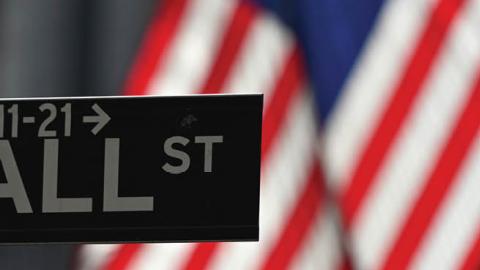The annual Consumer Analyst Group of New York conference is the place where large public companies go to get the equivalent of a Roman emperor’s thumbs up at the Colosseum: the approval of securities analysts who advise investors whether to buy, sell or hold a company’s stock. At CAGNY, food and beverage companies play up their rising sales trajectories, profits and marketing prowess. As you might expect, traditionally they’ve been loath to discuss barriers to selling what they believe consumers want.
That’s why this year’s conference, held virtually Feb. 16-19, had a huge surprise: Better-for-you foods were a hot topic, even among companies typically known for peddling less healthy fare. That’s encouraging, but more of these companies need to join this trend or risk losing the favor of investors and the public.
We’ve been used to food companies like Unilever, Nestle and Danone touting their healthier wares. But the CAGNY conference had a new cast of characters getting in on the act, showcasing their efforts to market more better-for-you versions:
* Mondelez, maker of Oreos, Chips Ahoy and Cadbury’s chocolates, announced it was introducing smaller-portion Cadbury sweets in the UK. It also emphasized its acquisitions of healthier brands like Enjoy Life (gluten and allergen free), Hu (simple, natural, organic & vegan) and Perfect Snacks (high-protein nut butter snacks). All this fits into the company’s “ Snacking Made Right ” strategy, and I expect it will be more of a leader in this space.
* ConAgra, the maker of staples like Banquet frozen foods, Blue Bonnet margarine and Chef Boyardee, is stepping up its efforts to deliver better-for-you foods. The creator of the Healthy Choice brand, the company lately has not been a stalwart of driving the movement to healthier eating. But that is rapidly changing as it announced new high protein bowls, plant-based chili, chick’n nuggets and burgers, and a bevy of low-/no sugar options. The company said it would also build on its Birds Eye vegetable brand.
* Hershey appears to have warmed to the opportunities of selling better-for-you snacks. The company is advancing its Zero Sugar platform (e.g., Reese’s Zero Sugar). Iconic brands Hershey’s Milk Chocolate and Reese’s Peanut Butter Cups now come in organic versions. More portion control and plant-based alternatives are in the offing.
Other packaged foods marketers also announced aggressive postures towards healthier foods. Kellogg’s stepped up strongly this year, with several no-sugar-added items and cereals touting digestive health. The Battle Creek, Mich., company also said it would build on the strength of its existing 86% pure plant-based protein portfolio under the Morningstar and Incogmeato brands. And stalwart Nestle noted that it planned to bring plant-based ingredients to its “blockbuster brands” like DiGiorno and Lean Cuisine. Perhaps its biggest surprise: the coming introduction of a Vegan Kit Kat!
This news represents a huge change from the CAGNY of two years ago, when Deloitte reported that “health and wellness” was not among the top areas of discussion. Has Big Food finally realized it’s what a large and growing number of consumers now want and need — especially as COVID-19 wanes and they emerge from the mac-and-cheese coma of endless social isolation?
A study by FMCG Gurus, a global market research firm, found that 80% of consumers around the world want to eat and drink healthier to buttress their health and immunity after the pandemic. A report by Partnership for a Healthier America (which I helped write) says post-Covid consumers want to eat healthier, cut sugar intake and eat more plant-based foods. Almost half of all consumers surveyed worldwide said they had upped their consumption of immune-supporting food during the pandemic.
And lest you think quarantined consumers have indulged only in pizza and cheesesteaks when they order take-out, think again. Grubhub, the restaurant delivery service, reported that vegan orders increased 23% over 2019 levels; plant-based burger orders tripled in popularity and plant-based items in general rose 135%. Smart restaurant companies will note this trend and find a way to ride it when people return to dining out.
While COVID has accelerated the healthy eating trend, it has been in place since 2010. The International Food Information Council’s (IFIC) 2020 Food and Health Survey noted that today more than half of consumers say the healthiness of their food matters, including 63% of Americans age 50 and up. However, health and wellness has been on consumers’ radar since 2010, the report notes, just behind taste and price.
The companies that are finally recognizing this trend deserve our applause. While few are as far along as Unilever and Nestle on the better-for-you front, it’s good to see some tangible progress. Other food companies have work to do to capture the growth in this category. Here are some things they could do to move faster:
* Track and report your company’s progress in selling healthier foods. Virtually all companies publish annual Corporate Social Responsibility (CSR) reports which now heavily emphasize sustainability initiatives. It’s time to incorporate more stringent and standardized ways to report the progress made in increasing the percent of products that meet better-for-you criteria. This will ensure a more aggressive transition to healthier foods and impress the securities analysts.
* Compare your company’s better-for-you product efforts against competitors. Nothing motivates corporations to change than being compared to competitors. A JD Power-type ranking of food and beverages concerns would go a long way to driving sales of healthier products and demonstrating to investor analysts that your company is future-focused.
* **Market healthier items with the intensity and savvy you have for your traditional but now slower-growing products.** Companies for the most part remain stuck on spending heavily behind their traditional and iconic brands. However, oftentimes this is geared to yesterday’s contribution to company growth. Food companies must finally bridge to spend disproportionally behind rapidly growing better-for-you products in order to grow faster and not lose market share.
Some of the best food and beverage companies jumped on the healthier food trend a decade ago. As more consumers ask for healthier options, it’s time for food industry holdouts to get serious. Those that do will have to worry far less about getting the thumbs-down from investors and consumers.
Read in Forbes




















